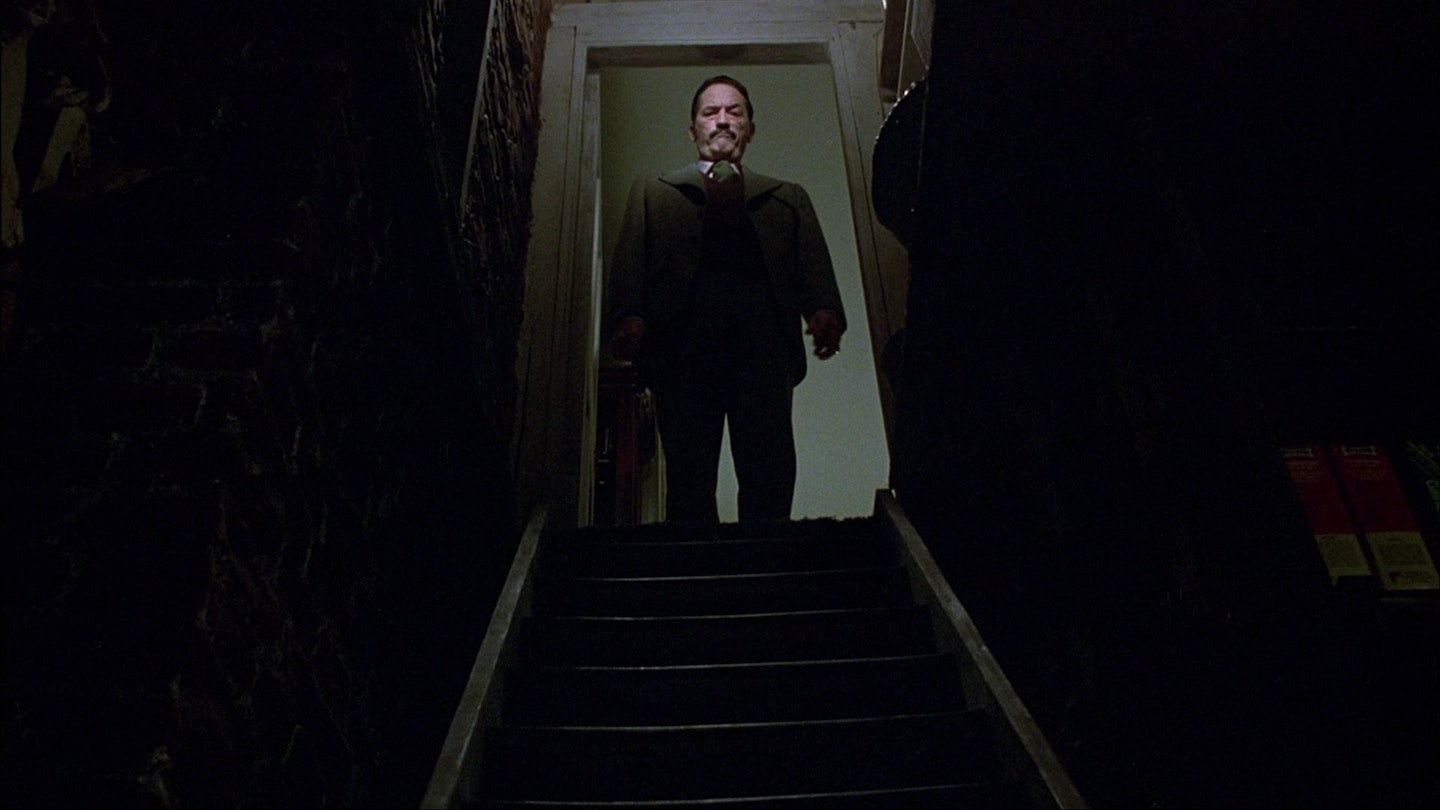When confronted with a novel so far-fetched and potentially dubious as Ira Levin’s old-Nazis up-to-no-good potboiler, the best approach is populate it with proud old actors guaranteed to lend it a credibility it doesn’t wholly deserve. The weather worn faces and grand elocution of Gregory Peck and Laurence Olivier does keep Franklin J. Schaffner’s dark thriller just about on an even keel, and by the laughable revelation carried in its denouement you are gripped enough not to gag with derision. In fact, for much of its slowburn build there is a classy, intelligent thriller at work, something closer in tone to The Odessa File. Still, you must remain guarded to how over the top and quasi-horror events will finally turn.
Now, due to concerns of being a Nazi Party-pooper, the crazed schematics at the heart of this twisty not-to-say twisted plot must remain hidden. It involves the fermenting of new Reich through some scientific excesses even Bond’s arch-villainy would consider overreaching, although the duo of elderly thesps (both 65 at the time) were never going to be up for a good chase scene no matter how many Dobermans you set on them.
Peck, in one of his scant few deviations from Atticus Finch’s strident moralism, snarls and sneers with relish as Mengele, a man of reason if not sanity. Olivier, loosely basing Lieberman on legendary Nazi-hunter Simon Wiesenthal, has always been able to switch sides with aplomb — he even played a variation on the evil German doctor two years previously in The Marathon Man — and their final confrontation does manage the electric buzz of those rare face-offs between screen greats. In the meantime, Peck-Mengele instructs his cronies to hotfoot it about the globe to execute a hit list of 94 ageing men, a psychological down payment on the outcome.
Having Jerry Goldsmith stir up another gothic score, as brazen and operatic as his clarion call of his Omen soundtrack, adds an appropriate layer of Wagnerian doom to proceedings. But, no matter how well-groomed, there’s no escaping the thinness and exploitation tendencies of Levin’s trite writing.

